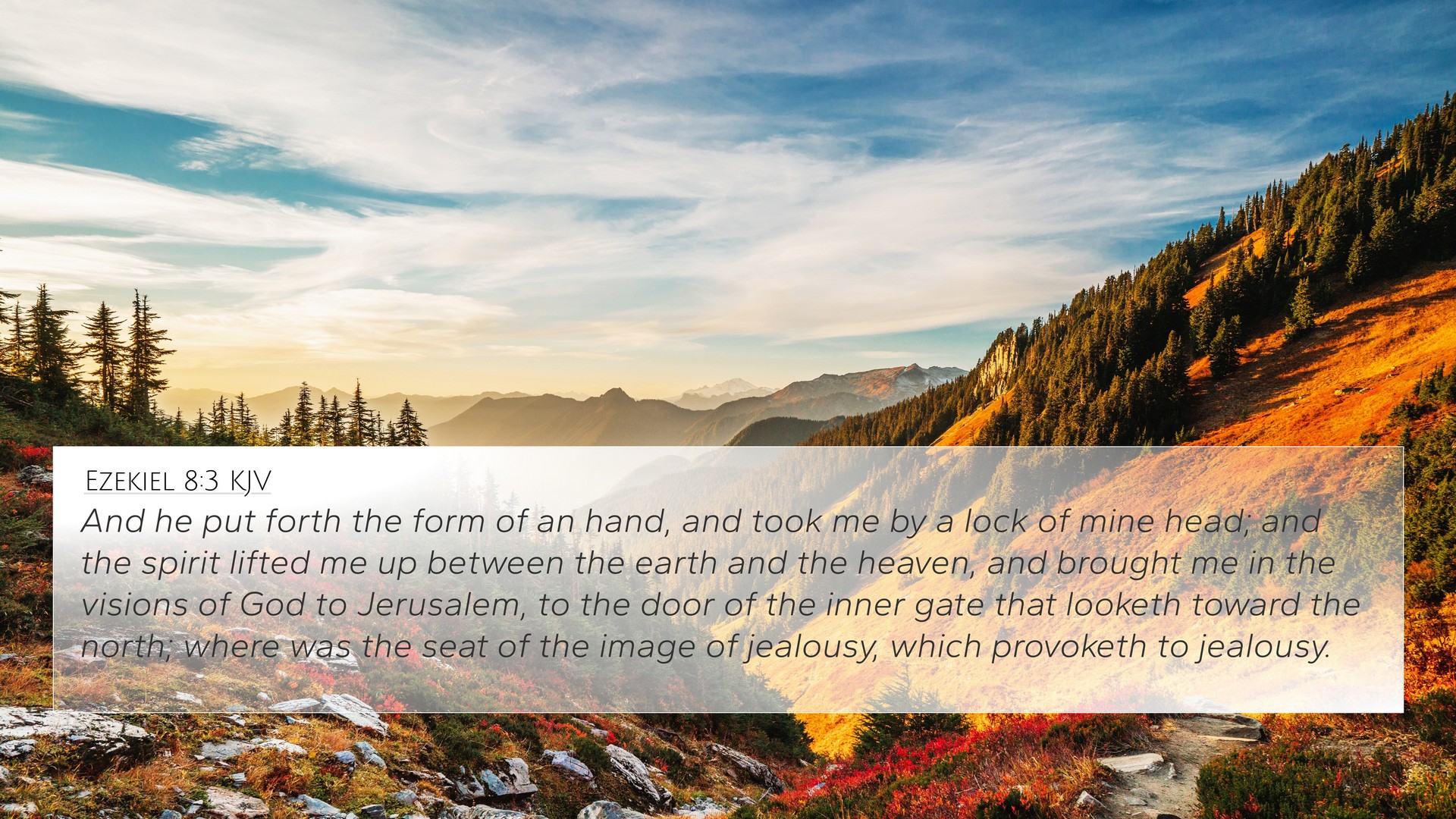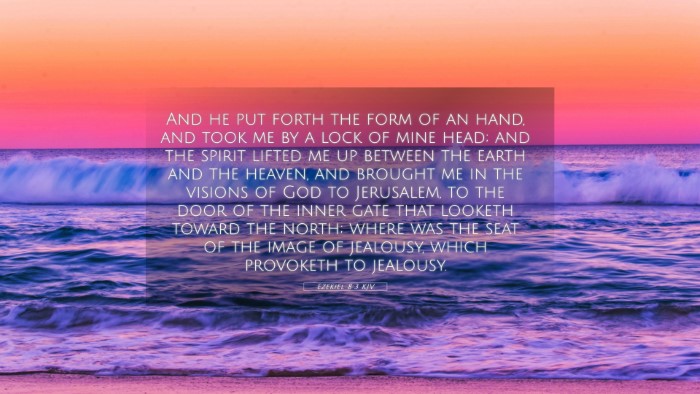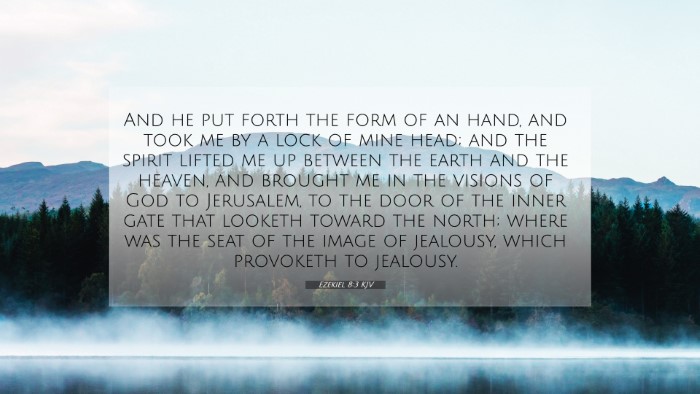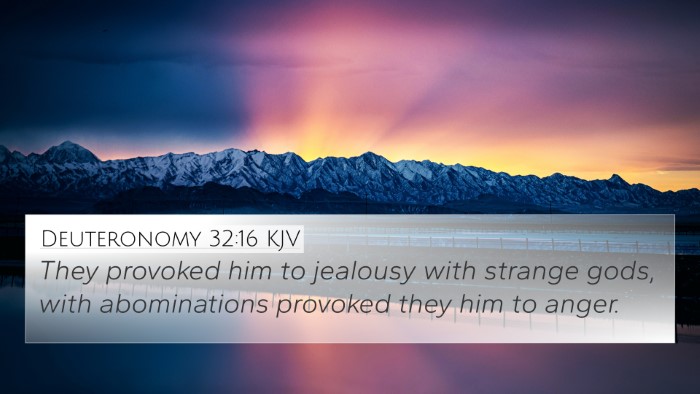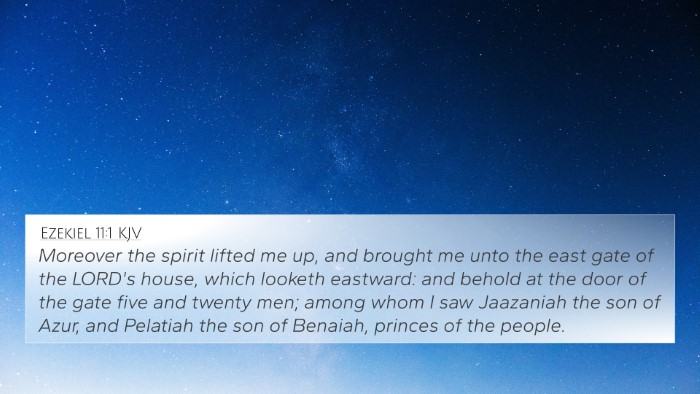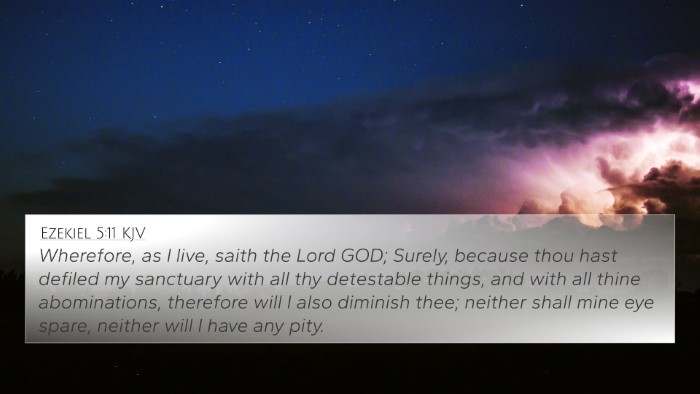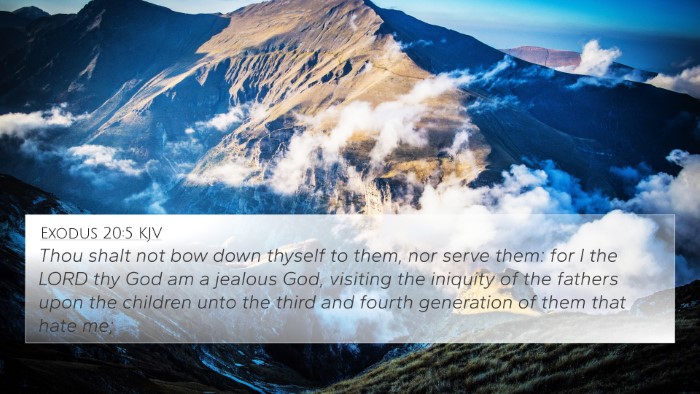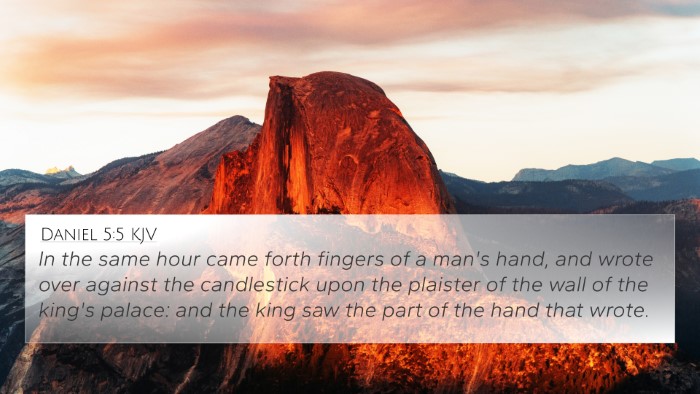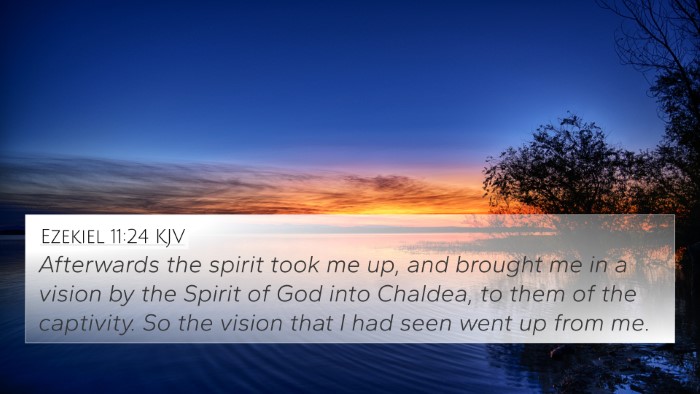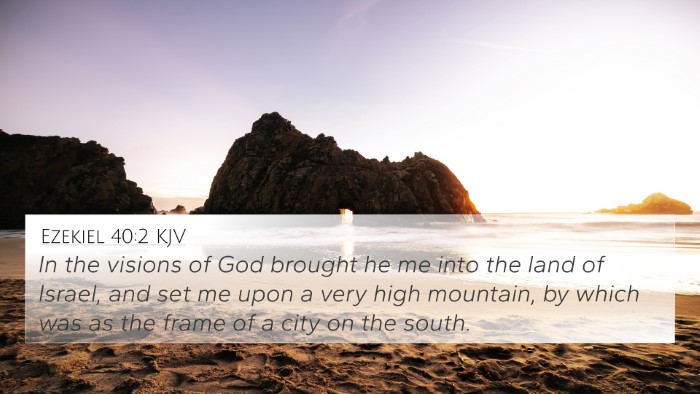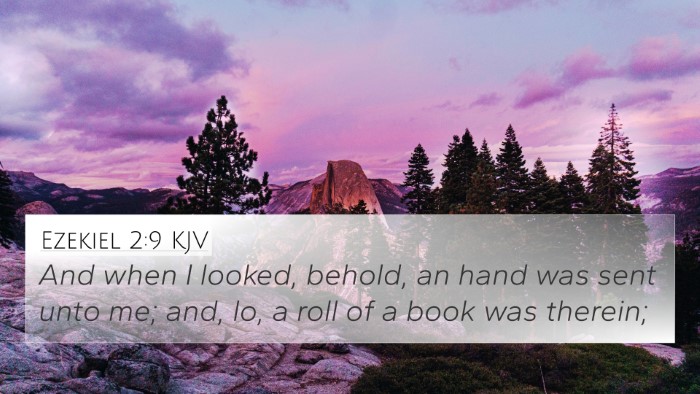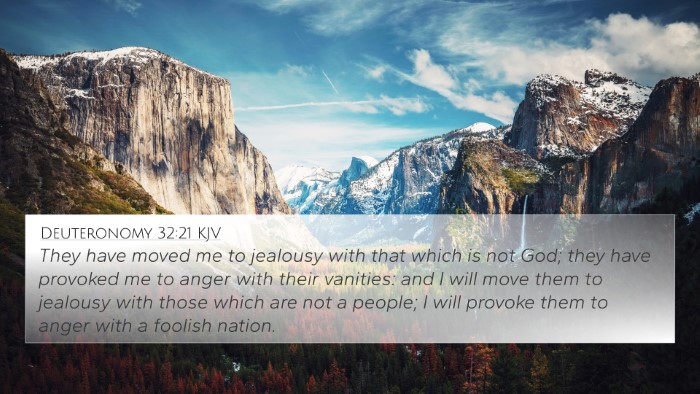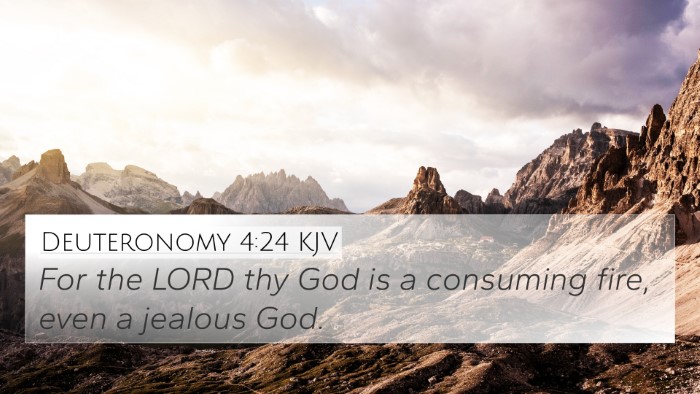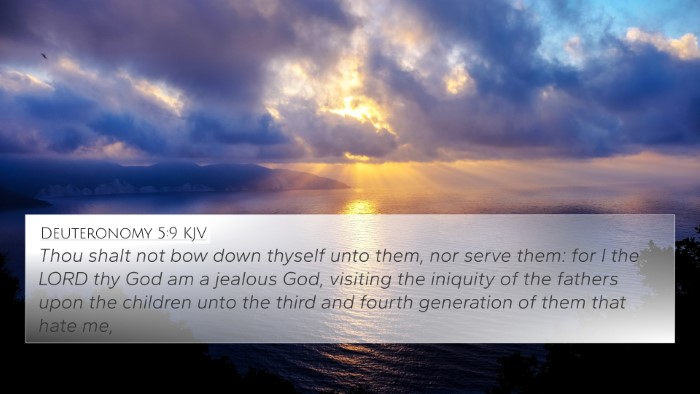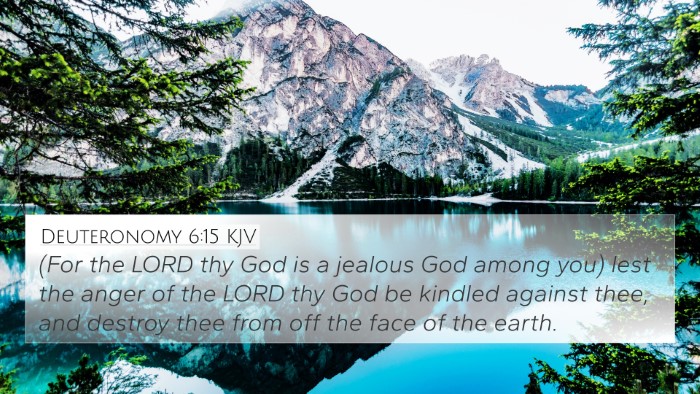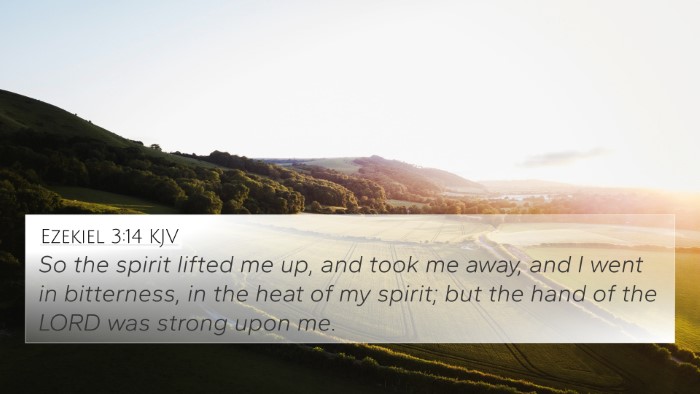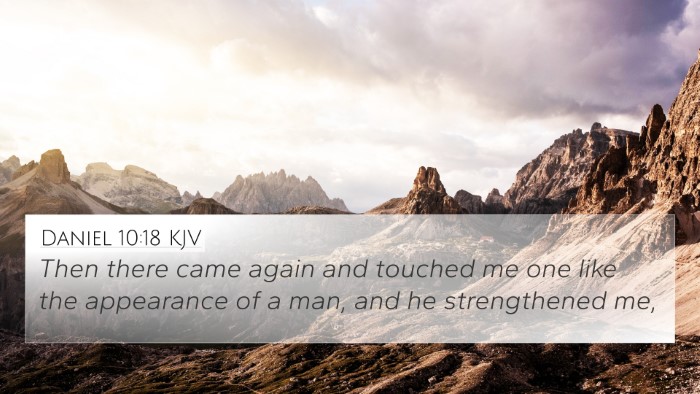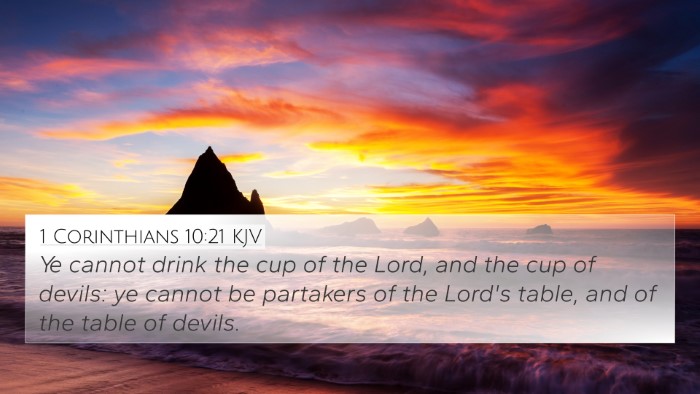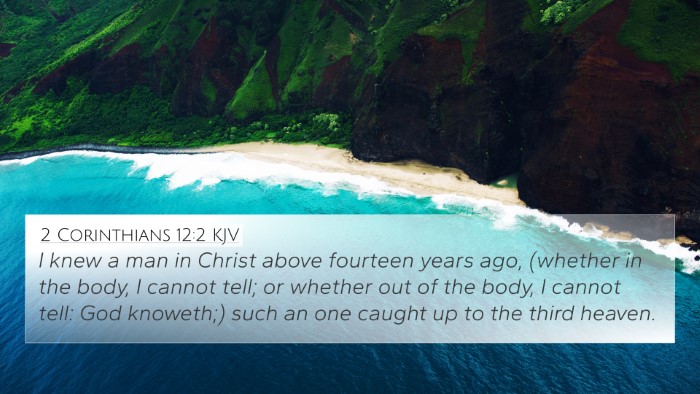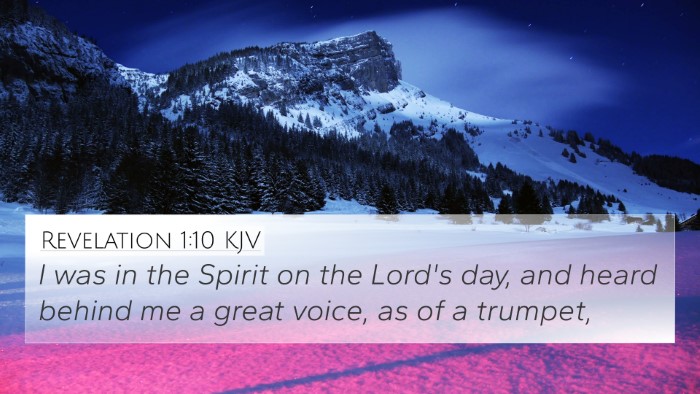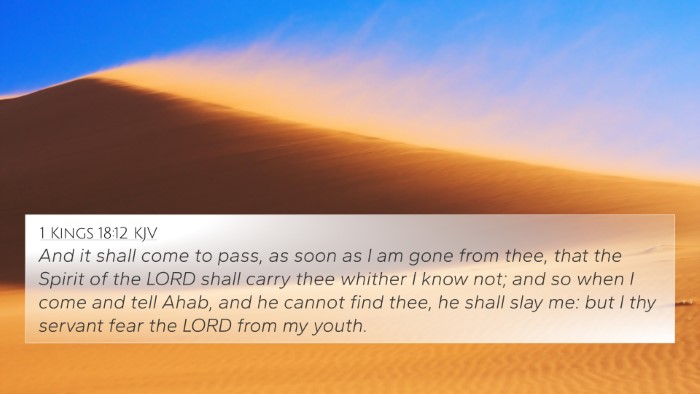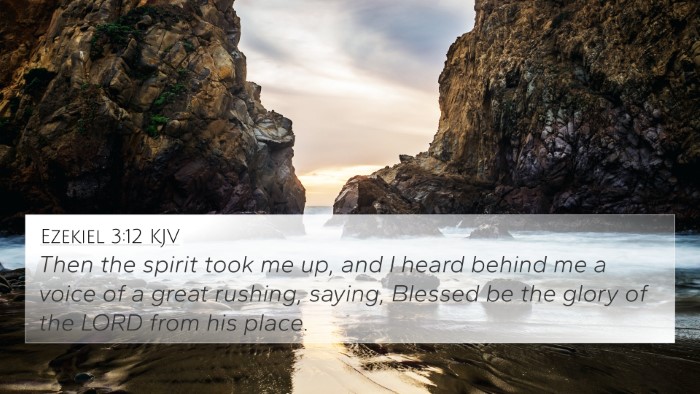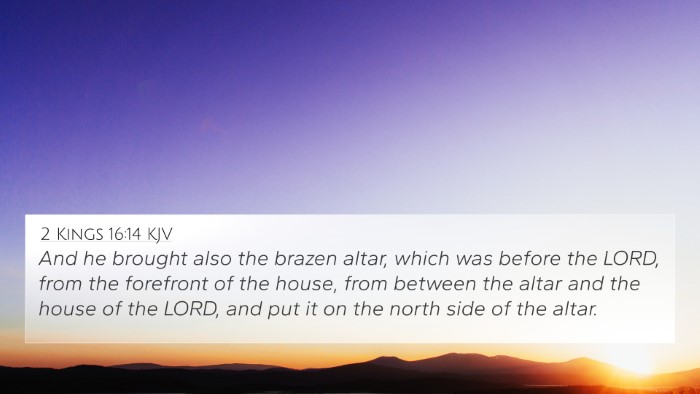Ezekiel 8:3 - Summary and Meaning
Ezekiel 8:3 states: "And he put forth the form of a hand, and took me by a lock of mine head; and the spirit lifted me up between the earth and the heaven, and brought me in the visions of God to Jerusalem, to the door of the inner gate that looketh toward the north; where was the seat of the image of jealousy, which provoketh to jealousy."
This verse serves as a pivotal moment in Ezekiel's prophetic vision, illustrating the profound nature of divine revelation and the seriousness of spiritual corruption among God's people.
Interpretation Insights from Commentaries
Matthew Henry's Commentary
Matthew Henry emphasizes the significance of divine intervention in Ezekiel's transport to Jerusalem. He notes that the "form of a hand" signifies God's power and authority in revealing the truth to Ezekiel about the idolatry prevalent in Jerusalem. The 'image of jealousy' represents the abominable idols that have taken the place of true worship, provoking God’s wrath.
Albert Barnes' Notes
Albert Barnes focuses on the visionary aspect of Ezekiel's experience, highlighting that he was 'lifted up between the earth and heaven,' indicating a remarkable perspective given to him by God. He underscores that the place Ezekiel is brought to is critical for understanding the nature of Israel's sin and the consequences of their infidelity to God's covenant.
Adam Clarke's Commentary
Adam Clarke points out that the 'door of the inner gate' suggests a place of access to the holy sanctuary, emphasizing the gravity of the contamination of the holy space by idol worship. He outlines that this vision serves to illustrate God's desire to reveal the depths of Israel's sins, calling for repentance and acknowledgment of their transgressions.
Thematic Connections and Cross-References
This verse serves as a basis for several Biblical themes and cross-references. The identification of the 'image of jealousy' indicates a recurring issue in the history of Israel, linking to other scriptures that address idolatry and God’s jealousy for His people. Below are some relevant cross-references:
- Exodus 20:5 - "For I the LORD thy God am a jealous God..." - establishing God's claim over His people.
- Deuteronomy 4:24 - "For the LORD thy God is a consuming fire, even a jealous God." - emphasizing God's intolerance towards idolatry.
- Jeremiah 7:30 - "For the children of Judah have done evil in my sight, saith the LORD..." - demonstrating the history of Israel's disobedience.
- Hosea 4:12 - "My people ask counsel at their stocks, and their staff declareth unto them..." - highlighting the folly of idolatry.
- Isaiah 65:3 - "A people that provoketh me to anger continually to my face..." - God’s response to Israel's unfaithfulness.
- James 4:5 - "Do ye think that the scripture saith in vain, The spirit that dwelleth in us lusteth to envy?" - discussing God's jealousy in the New Testament context.
- Romans 11:2 - "God hath not cast away his people which he foreknew..." - reaffirming God's continual recognition of His covenant with Israel.
- 1 Corinthians 10:14 - "Wherefore, my dearly beloved, flee from idolatry." - a New Testament exhortation against idolatry.
- Hebrews 12:29 - "For our God is a consuming fire." - reiterating God's holiness and demand for purity among His people.
Understanding the Context
The context of Ezekiel 8 is crucial in understanding the gravity of the vision. It occurs during a time when the Israelites were deeply engrossed in idolatrous practices, and the presence of false gods in their midst called for divine judgment. This vision serves not only as a warning but also illustrates God's effort to reach out to His people through His prophets.
Practical Applications
In analyzing Ezekiel 8:3 and its context, believers are reminded of the seriousness of spiritual fidelity to God. Idolatry, whether in ancient Jerusalem or modern times, invokes God's jealousy and calls for repentance. This verse encourages the faithful to examine their hearts for any idols that may be present, hindering their relationship with God.
Conclusion
In conclusion, Ezekiel 8:3 opens up a profound dialogue about God's nature, His expectations of holiness, and the perils of spiritual corruption. By utilizing tools for Bible cross-referencing, such as a Bible concordance or cross-reference guide, one can further explore the connections between biblical texts and enhance their understanding of scripture. Each of these connections fuels a deeper understanding of God’s character and His dealings with humanity.
Believers seeking to understand the biblical text can utilize the insights gathered through comparative Bible verse analysis and thematic Bible verse connections to form a holistic view of God's interaction with His people across time.
